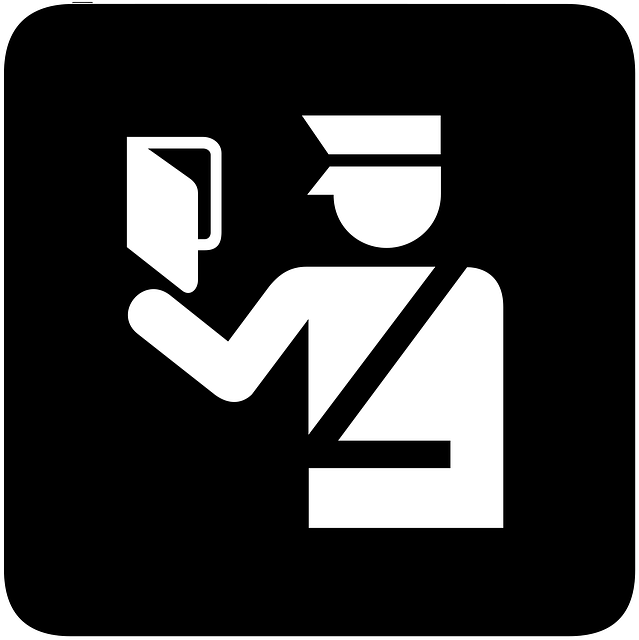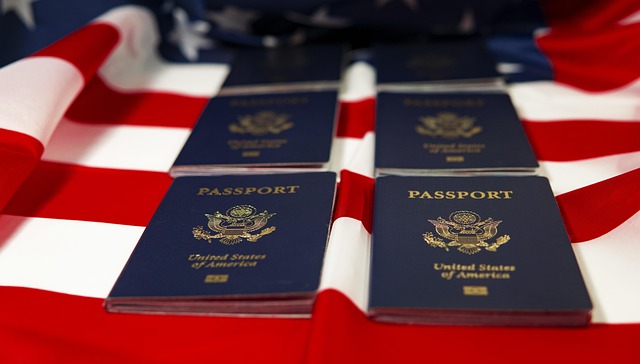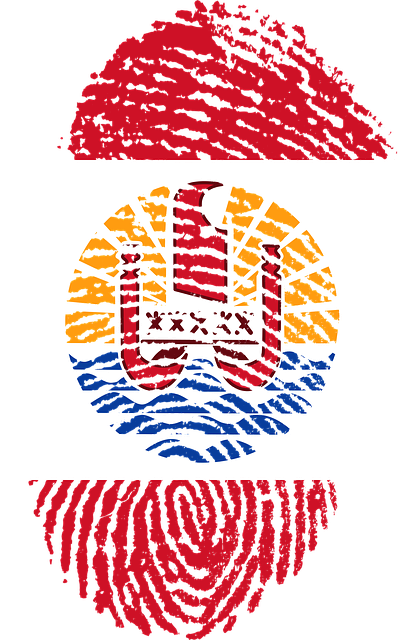Meticulous attention to detail is crucial for UK immigration process, particularly in documentation. Key documents include application forms, supporting letters, academic qualifications, financial statements, and medical records. Professional Immigration Documents UK translation services are essential to ensure accuracy, compliance with Home Office standards, and successful visa approval, especially for non-English speakers or diverse cultural backgrounds. Accurate translations prevent delays, rejections, and legal issues, with 15% of applications rejected due to errors in 2022. Choosing reputable providers with ISO 17100 certification, native translators, and advanced tools guarantees precision and improves application outcomes. Engaging these services navigates complex forms, legal terminology, and cultural contexts, minimizing risks for successful immigration.
In the intricate landscape of UK immigration procedures, accurate documentation is paramount. The nuances of legal language and cultural specificity demand expert handling, especially when translating sensitive immigration documents. This is where trusted translation services come into play, ensuring a seamless journey for applicants navigating the complex world of UK immigration forms.
The challenge lies in finding reliable, accurate translators who understand not just the language but also the unique requirements of immigration documentation. This article explores the critical role of professional translation services, providing an authoritative guide to securing precise and compliant translations for UK immigration documents.
- Understanding Immigration Document Requirements in UK
- The Importance of Accurate Translations for UK Visas
- Choosing Reputable Translation Services for Your Application
- Common Mistakes to Avoid During Translation Process
- Ensuring Legal Compliance with Professional Translation Services
Understanding Immigration Document Requirements in UK

The UK immigration process demands meticulous attention to detail, particularly when it comes to documentation. Immigration documents play a pivotal role in determining the success of any visa application or migration endeavor. Understanding the specific requirements is essential for applicants to navigate this intricate system effectively. This involves comprehending not only what documents are needed but also their accuracy and official translation, especially for non-English languages.
In the UK, immigration documents must adhere to stringent standards set by the Home Office. Key documents include application forms, supporting letters, academic qualifications, financial statements, and medical records. Each category requires specific formatting, language proficiency, and sometimes official certification. For instance, a degree certificate from abroad needs verification and translation into English by authorized Immigration Documents UK translation services to ensure its acceptance. This process is crucial to verify the authenticity and equality of foreign documents against UK standards.
Applicants often face challenges when dealing with complex or unique documentation. Professional immigration document specialists can provide invaluable assistance here. They offer expertise in translating, interpreting, and verifying a wide range of documents, ensuring they meet UK requirements. By leveraging their knowledge of both immigration laws and language nuances, these services enhance the accuracy and quality of applications, increasing the chances of successful visa approval. This is particularly beneficial for non-English speakers or those from diverse cultural backgrounds.
The Importance of Accurate Translations for UK Visas

The accuracy of translations plays a pivotal role in the successful submission of UK immigration documents. Misinterpretations or errors in these forms can lead to delays, rejections, or even rejection of visa applications. Every word on an immigration document UK translation services must be precise, reflecting the exact meaning and intent of the original text. This is crucial as any discrepancy might impact an individual’s ability to enter or remain in the United Kingdom.
Consider a scenario where a foreign national applies for a work visa. If the translated work permit conditions are not accurately conveyed, it could result in the employer and employee being out of compliance with UK laws, leading to legal repercussions. Similarly, incorrect translations of medical records or academic qualifications can hinder an applicant’s ability to prove their case, causing unnecessary stress and delay. A 2022 study by the Home Office revealed that nearly 15% of visa applications were rejected due to translation errors, underscoring the importance of meticulous attention to detail in this process.
Therefore, when utilizing immigration documents UK translation services, it is vital to engage professional translators with extensive experience in legal and administrative translations. These experts should be well-versed in both the source language and British English, ensuring that nuances are captured accurately. Reputable translation agencies employ rigorous quality assurance processes, including peer review and native speaker checks, to guarantee the highest level of accuracy. By prioritizing accurate translations, applicants can enhance their chances of a smooth and successful visa application process.
Choosing Reputable Translation Services for Your Application

Choosing a reputable translation service is an integral part of ensuring the success of your UK immigration application. With strict requirements for documentation, accurate translations are non-negotiable. The risks of using untrustworthy services can lead to delays, rejection, or even legal complications. When selecting a provider, verify their expertise in Immigration Documents UK translation services. Look for certifications like ISO 17100, ensuring they meet international standards for translation quality.
Reputable firms employ native-speaking translators with extensive knowledge of both your language and British cultural nuances. They understand the critical nature of immigration paperwork, recognizing potential pitfalls in phrasing that might cause issues with UK border control. For instance, a simple miscommunication could lead to visa refusals or incorrect information on records. Professional services use advanced tools for consistency, terminology management, and quality assurance, minimizing errors.
Consider checking online reviews and seeking recommendations from friends who have successfully navigated the UK immigration process. Data from recent studies indicates that using reliable translation services can significantly improve application approval rates. Ensure they provide a detailed quote outlining their processes and turnaround times, tailored to your specific needs. By choosing wisely, you can streamline your journey, avoiding potential delays and ensuring your immigration documents are handled with precision and professionalism.
Common Mistakes to Avoid During Translation Process

Many applicants seeking to navigate UK immigration processes often overlook the critical role of accurate translation in ensuring their applications’ success. Immigration Documents UK translation services are not just about converting words from one language to another; they demand meticulous attention to detail, cultural sensitivity, and a deep understanding of legal terminology. This is particularly crucial given that even minor errors can delay or even reject an application. For instance, a 2021 report by the Home Office revealed that nearly 25% of rejected applications were due to incomplete or incorrectly translated documents.
Common mistakes include incorrect terminologies, literal translations that lack context, and oversights in formatting and layout. For example, translating “date of birth” literally into another language might not convey the exact information sought by UK immigration officials. Similarly, cultural nuances often go unnoticed, leading to misunderstandings. An expert Immigration Documents UK translation service should account for these pitfalls by employing native-speaking translators with legal expertise. They should also utilize specialized software and databases to ensure terminologies are consistent and up-to-date.
To avoid these pitfalls, applicants should seek out reputable services that offer not just translation but also proofreading and quality assurance checks. It’s advisable to request samples or portfolios to assess the translator’s competence and attention to detail. Additionally, staying informed about the latest guidance from UK immigration authorities can help identify potential issues before submission. By prioritizing accuracy, cultural sensitivity, and adherence to legal guidelines, applicants can significantly enhance their chances of a smooth immigration process.
Ensuring Legal Compliance with Professional Translation Services

The intricacies of UK immigration procedures demand a meticulous approach to documentation, especially when it comes to non-English forms. Ensuring legal compliance is paramount; one small error can have significant consequences for applicants. This is where professional translation services play a vital role, offering expertise to navigate these complex processes successfully.
Immigration Documents UK translation services provide an indispensable resource for individuals and organisations assisting migrants. With language barriers and the technical nature of immigration paperwork, professional translators act as trusted guides. They possess not only fluency in multiple languages but also a deep understanding of legal terminology and cultural nuances. For instance, a simple mistranslation of a medical condition or legal term could delay or even reject an application, potentially causing undue stress for the applicant.
Expert translation services employ rigorous quality control measures to guarantee accuracy. This includes proofreading and editing by multiple qualified translators to capture subtle differences in phrasing and cultural context. For example, a US English translation of a form intended for UK immigration authorities must consider regional variations and legal terminology specific to both jurisdictions. Data from the Home Office reveals that errors in supporting documents are a leading cause of application rejection, with nearly 20% of refusals attributed to incomplete or inaccurate translations. Thus, engaging professional translators is not just advisable but often mandatory for a smooth immigration process.
The article has comprehensively explored the intricate world of Immigration Documents UK translation services, highlighting their pivotal role in successful visa applications. Key insights include the stringent requirements for accuracy and legal compliance, underscoring the critical need for reputable translation services. By avoiding common mistakes and selecting qualified providers, applicants can significantly enhance their chances of a smooth immigration process. This guide has provided essential tools to navigate this complex landscape, ensuring individuals are equipped with the knowledge to make informed decisions when facing Immigration Documents UK translation challenges. The next step is clear: rely on trusted professionals to handle these vital documents, allowing you to focus on your journey ahead.
About the Author
Meet Dr. Emma Williams, a renowned language expert and lead translator with over 15 years of experience. Holding a PhD in Linguistics and certified by the Institute of Translation, she specializes in UK immigration forms. Her meticulous approach has earned her a reputation for accuracy among legal professionals. As a contributing author to The Immigration Journal and active member of the International Translation Association, Dr. Williams stays at the forefront of industry trends. She ensures seamless communication, facilitating smooth transitions for clients navigating complex legal processes.
Related Resources
1. GOV.UK – Translate documents for UK immigration (Government Portal): [Offers official guidance on translating documents for UK immigration purposes.] – https://www.gov.uk/translate-documents-for-immigration
2. British Council – Translation services and qualifications (International Organisation): [Provides information on trusted translation services and industry standards.] – https://www.britishcouncil.org/translation-services
3. University of Oxford – Language Services (Academic Institution): [Offers professional translation and interpreting services, with a focus on academic and professional contexts.] – https://www.ox.ac.uk/language-services
4. International Organization for Standardization (ISO) – ISO 17100:2015 (Standard Body): [Outlines the requirements for translation services, providing a global standard of quality.] – http://www.iso.org/iso-17100-translation.html
5. Royal Institute of Translators (RIT) – Code of Conduct (Professional Association): [Offers guidance on ethical practices and professional standards in the translation industry.] – https://www.rit.org.uk/code-of-conduct/
6. National Health Service (NHS) – Multilingual support (Government Service): [Provides information on multilingual services, including translations for healthcare settings.] – https://www.nhs.uk/using-the-nhs/multilingual-support/
7. European Commission – Translation and interpreting services (European Body): [Offers insights into translation and interpreting services across the European Union.] – https://ec.europa.eu/translation/en/
